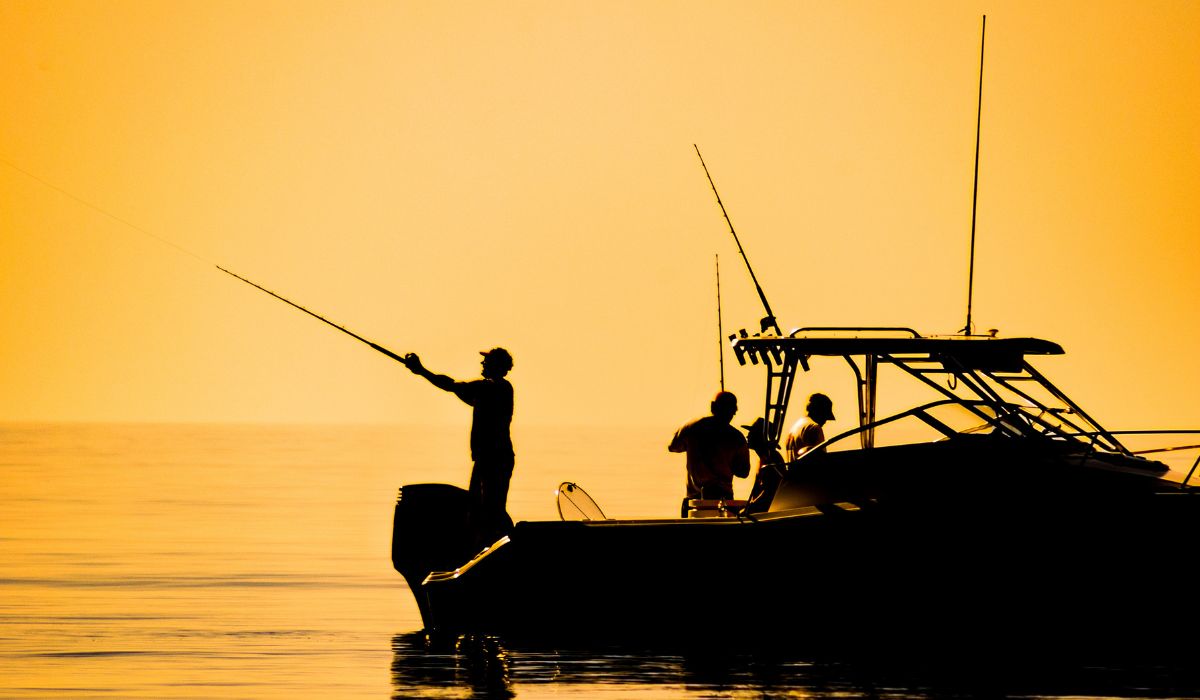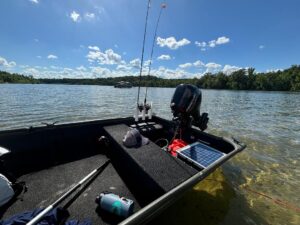Are you in the market for a fishing boat? Make a smart choice for your needs by reviewing these main things you should consider before buying.
Whether you’ve been fishing all your life or you recently picked up the hobby, few things can elevate your experience quite like having your very own fishing boat. When you own a vessel, you can head out to cast your line wherever and whenever you want. But there are so many fishing boats on the market and hundreds of features to consider for each model. How on earth are you supposed to know what you should get?
That’s what we’re here to help with. Below, we explore a few essential things to consider when buying a fishing boat. Though this list isn’t quite comprehensive, it will reveal the most impactful factors that should guide your decision.
The Type of Fishing You Enjoy
First things first, you must think about how and where you fish. Different boats are built with different purposes and needs in mind. For instance, though you could cast your line from a kayak, that’s not the most practical of vessels.
Fishing boats fall into two main categories: those for freshwater fishing and those for saltwater fishing. If you’re primarily hitting rivers, lakes, and reservoirs (like Lake Wylie), any small aluminum fishing vessel (including bass boats) or a pontoon boat could be your best bet. These designs are nimble, great for shallow waters, and functional for casting and reeling in bass, crappie, or sunfish.
On the other hand, if you’re eyeing adventures along the Outer Banks or offshore, you’ll need something tougher. Saltwater fishing boats are built with materials like fiberglass and stainless steel to withstand the harsher conditions of the ocean. Most ocean anglers prefer center consoles or sport fishers.
How Big the Vessel Can and Should Be
The size of your boat determines how many people it can carry, how much gear you can pack, and where you can launch it. Fishing vessels vary wildly in size, with the smallest dinghy coming in at about 6 feet and the largest sport fisher exceeding a whopping 100 feet.
If you’re going to stick to lakes and fish mostly by yourself or just a friend or two, then you don’t need a massive vessel. Anything around or under 20 feet in length should do the trick. However, if you’re launching out at sea or want to host fishing parties onboard, then you’ll need something much larger. Anything over 25 feet (or 30+ feet for offshore sailing) should get you safely out to sea.
Don’t Forget About Storage!
You need access to a storage location big enough to accommodate your vessel. Whether that’s a simple cantilever boat lift or a rented slip at the marina, make sure your boat’s size matches your storage capability.
The Best Hull Material for Your Needs
Most recreational fishing boats are built with aluminum or fiberglass hulls. Both have their perks, but you should know which you’d prefer.
Aluminum boats are lightweight, durable, and generally more affordable. They’re best for fresh water, though they can sail in salt water if you care for them properly. Aluminum vessels tend to be smaller and built for navigating shallow waters.
Fiberglass boats, conversely, are better equipped for larger bodies of water and salty seas. They offer outstanding durability and performance, which is reflected in a typically higher price. Maintenance can also be easier for fiberglass vessels because of how resilient the material is.
Ultimately, if you want to enjoy saltwater fishing, you should get a fiberglass vessel. Otherwise, either option should work for you.
Engine and Power Requirements
Your boat’s engine is what makes the vessel functional, so you’ll need the right one to maximize your time on the water. The type, size, and horsepower all matter here.
Your most important choice is between inboard and outboard models. Outboards are more popular because they’re easier to install, maintain, modify, and so forth. They’re just not the most practical for very big boats (or boats meant for water sports).
You can buy outboard motors for saltwater and freshwater fishing. Keep in mind that if your vessel is on the larger side or you’ll be heading out to sea, you’ll probably need more than one outboard motor.
Also, you’ll likely want a trolling motor or an outboard with a trolling function. This motor is quieter and gentle in the water, so it won’t scare off fish. If you’re fishing exclusively on lakes, then you can get away with just a trolling motor.
Pro Tip
Remember to check the max horsepower rating for your boat and avoid motors that exceed this rating; it’s a potential safety hazard for you and your vessel.
Features and Gadgets You’ll Want
Fishing boats often come loaded with features these days, but it’s important to know what you actually need.
Fish Finder – A fish finder is at the top of the list. This device will let you know where fish are and read underwater structures so you can navigate around them.
Rod Storage – You’ll want a safe, secure place to store your rods while you’re navigating.
Livewell – This water-holding tank will keep your bait or your catch alive and kicking until you can use or butcher it.
Comfort Amenities – If you’re spending long stretches on the water, you’ll definitely want to upgrade the comfort factor. First, choose between mechanical and hydraulic boat seats with extra cushioning and shock absorption. Then, make sure your vessel has enough shade. If it doesn’t have an enclosed cockpit or shade canopy already, consider installing one. Finally, if you want to enjoy perishable food and cold beverages during your time on the water, you’ll want a built-in cooler.
How You Enjoy the Test Drive
Lastly, never commit to buying a boat without taking it for a test run. It’s like test-driving a car but even more important because boats are more expensive and each one feels different on the water. Pay attention to how it handles, accelerates, slows down, turns, and so forth. If possible, test it in the kind of waters and conditions you’ll use it in most.
Also, take a moment to imagine how the space works for you. Is there enough room for your gear? Can you easily access the livewell or trolling motor? These little things are more important than many first-time boat owners realize.
Buying a fishing boat is a big decision, but when you find the right one, it’s always worth it. By remembering to consider the things we’ve talked about, you can set the foundation for smart boat shopping. Take your time and do your research—your perfect vessel is out there!




Leave a Reply